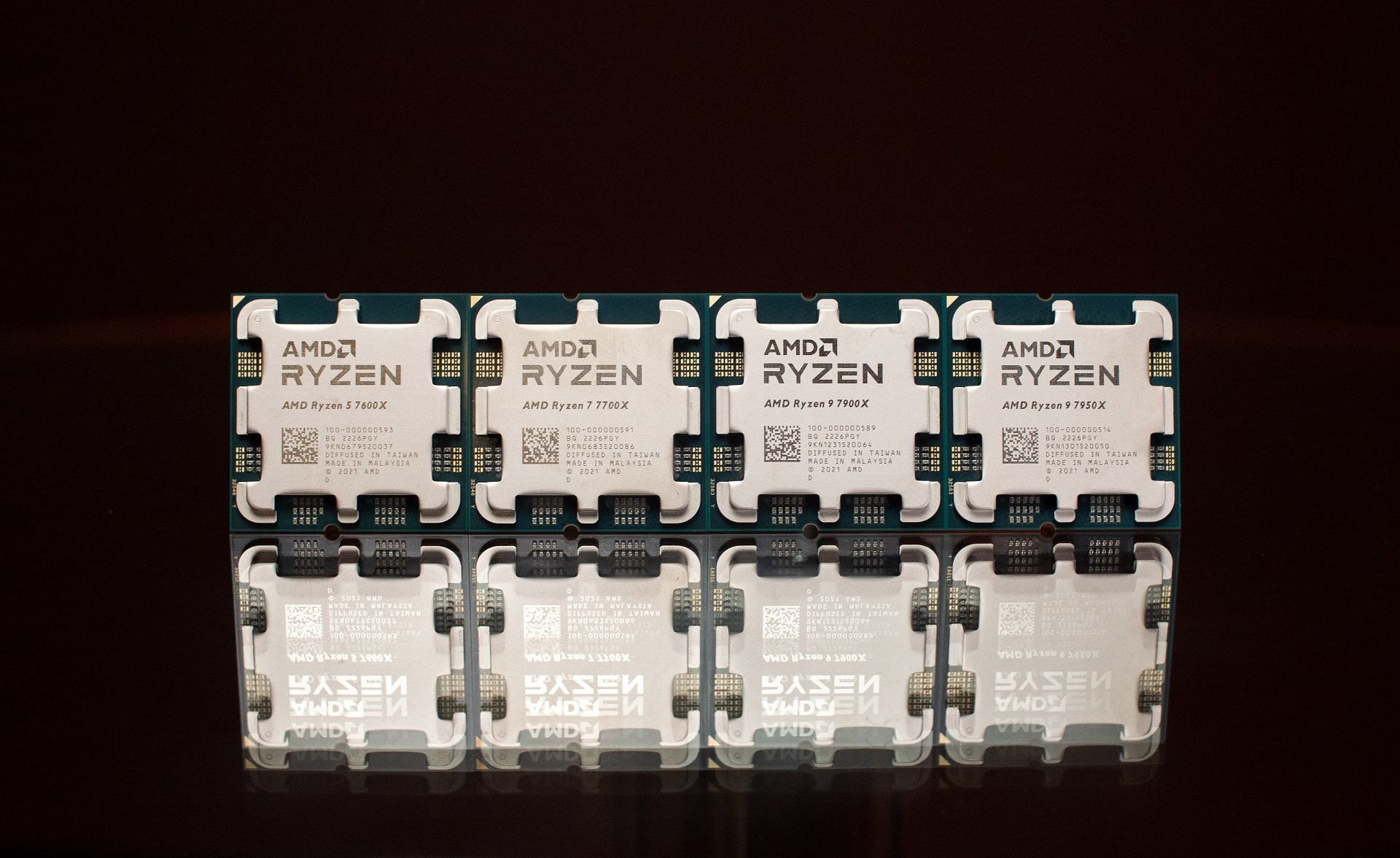The latest Ryzen 7000 series CPUs by AMD was recently announced along with their specifications. The performance boost over the previous generation was higher than expected and came as a welcome surprise. Moreover, the launch prices are similar to the previous generation, with the top model priced $100 less than the previous flagship.
The main differences between the two generations are the manufacturing process used, socket compatibility, system memory compatibility, and PCI Express version. The Zen 4 architecture adopts the new AM5 socket with TSMC 5nm process node and DDR5 memory compatibility with added support for PCIe 5.0. Other than that, there are general performance improvements with better efficiency, although with a higher TDP (Thermal Design Power).
AMD Ryzen 7000 series is a massive improvement over their Zen 3 CPUs
Ryzen 5 5600X vs Ryzen 5 7600X
The newer Ryzen 5 7600X has 27% faster multi-core performance and 24% faster single-core performance, according to benchmark scores on Cinebench R23. Moreover, a 6MB increase in L3 cache size will help games load faster and run smoother as well without any random stutters. The L2 cache size per core has also doubled in the newer CPU.
Although there is no difference in the launch price, users will get a much higher price-to-performance ratio with the lowest-end Ryzen 7000 CPU. According to AMD, this CPU has better single-core performance than Intel's fastest i9-12900K and up to 57% improvement in content creation tasks, which gives the average user more than enough reason to invest in the 7600X.
Ryzen 7 5700X vs Ryzen 7 7700X
According to the Cinebench R23 benchmarks, the Zen 4 architecture of the Ryzen 7 7700X offers 33% faster single-core performance and 42% faster multi-core performance. More benchmark scores need to be released, but it is expected that the 7700X will perform up to 40% better in games and content creation tasks.
The base frequency has been increased by more than 1000 MHz (a huge improvement over its predecessor), resulting in much better frame rates in CPU-bound games and largely reduced rendering times. The only downside of this CPU is that it has a $100 higher launch price than its predecessor, although the Ryzen 7 5700X was recently released in April 2022.
Ryzen 9 5900X vs Ryzen 9 7900X
The older Ryzen 9 5900X was already a magnificent CPU and has now been improved in every possible way, with an increase in the total L3 cache, base and boost frequency, and a higher IPC (instructions per clock), making it a much better offering at the same launch price.
The AMD Ryzen 9 7700X sees a 20% improvement in single-core performance and a 32% improvement in multi-core performance, according to Cinebench R23 benchmarks. With a 12MB increase in the total L3 cache size, a large improvement should be observed in games at every resolution. Even though the new CPU has a higher TDP, it justifies the 170W consumption with its massive improvements.
Ryzen 9 5950X vs Ryzen 9 7950X
The Ryzen 9 5950X was previously the fastest AMD CPU, but it has been superseded by the new flagship, the 7950X. The best part is that the fastest CPU in the market comes with a launch price that is $100 lower than its predecessor, giving this CPU the best price-to-performance ratio in the market.
According to the company's CEO, Dr. Lisa Su, the AMD Ryzen 9 7950X is the fastest CPU in the world and "simply the best" for gaming and content creation. However, Intel's 13th Gen Raptor Lake CPUs are yet to be announced, and no concrete information is available regarding their speeds.
The AMD Ryzen 9 7950X is up to 57% faster than the 5950X and 62% faster than the Intel i9-12900K. It offers this performance while consuming 47% less power than its predecessor due to the new 5 nm manufacturing process. Moreover, it has 23% faster single-core performance and 48% faster multi-core performance, according to Cinebench R23 benchmarks.

